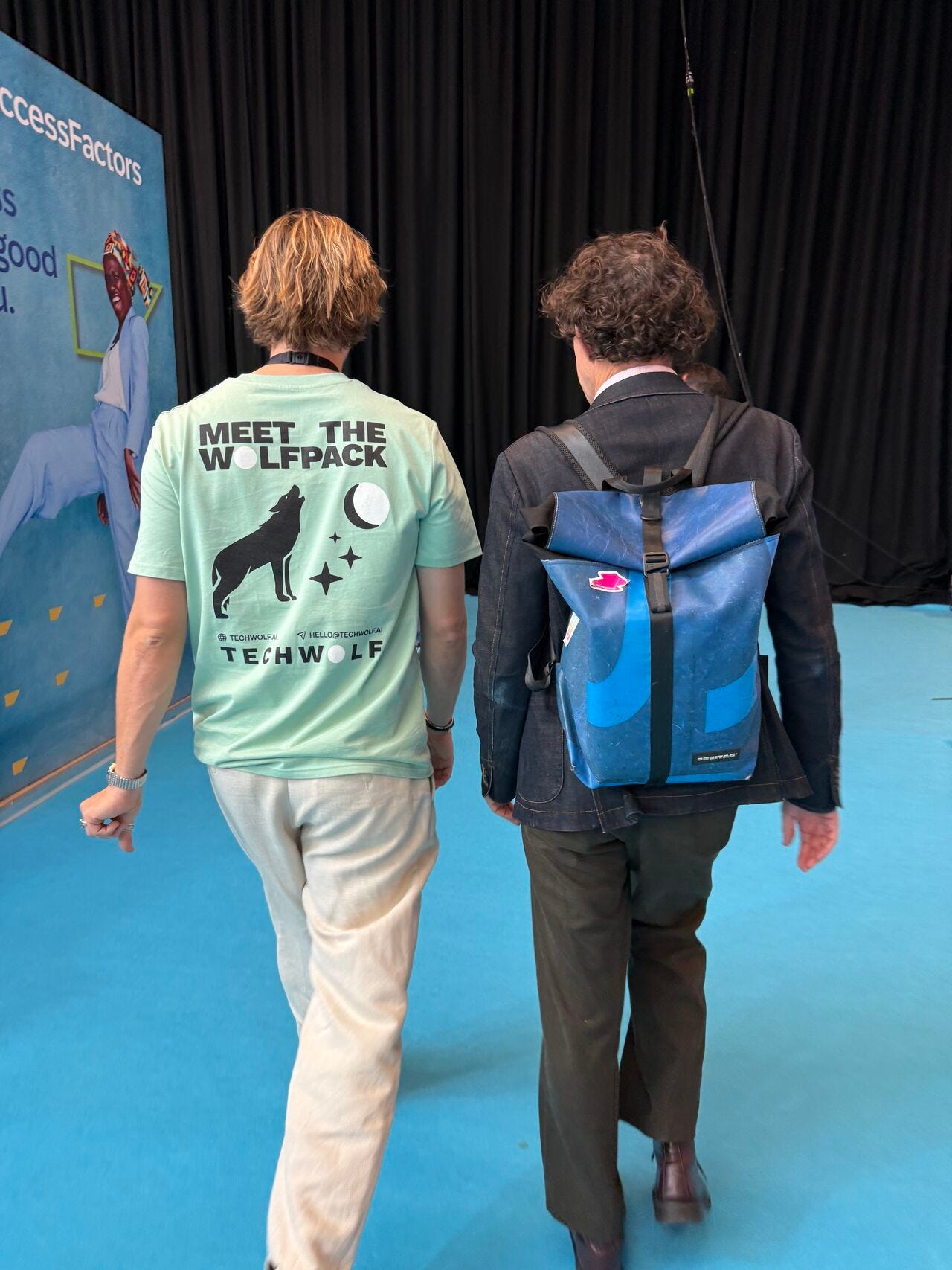A list after Unleash.
A stream of comments and reflections on the state of worktech
Marc Coleman and his team run a very professional show. I can’t put my finger on why, but this year felt like an improvement on last year. He has focused on getting the details right, and it shows. The general sentiment from others was positive too. Well played Marc and your team.
I’ve made many friends over the years at this event. Reconnecting is lovely.
The community in worktech is thriving. Perhaps there is a selection bias, but there is a generation of HR leaders determined to make better use of technology than their predecessors did.
It is really hard to navigate what is real and what isn’t. Potemkin AI is still a thing.
We aren’t in the middle of a revolution. The incumbent vendors remain the incumbent vendors, and most of them have a competent AI narrative. Most are now buying their way into executing on that strategy. This is smart.
Most agents aren’t really agents. Peeling away the marketing, this is probably a good thing. I don’t think we are ready for genuinely autonomous agents.
Change management is the most important skill for AI adoption success.
There is a cohort of European founders taking on the world. They don’t think small. They will not ask permission to win globally. Think Techwolf, Deel, HiBoB, Origin Benefits, Kombo, Maki…
I’m sorry that I couldn’t stay for Daniel Susskind’s lecture. I’ve been borrowing his horse manure allegory, and I wanted to thank him for it. His work on work is brilliant.
I still don’t like products named after people, alive or dead, famous or not. Anthropomorphism is harmful and insulting.
AGI is miles away.
Most pundits underestimate Oracle. This is probably because I don’t think Oracle gives a damn about what pundits think about Oracle.
There are several European multinationals that are deploying significant AI capabilities in production. For instance, I was really impressed with the Sanofi presentation.
The M&A market is robust, but lofty valuations require companies to have deep AI chops.
Societal and political dynamics in Europe are different from the US. Assumptions about employment and AI adoption can’t be the same. To do so is intellectually lazy at best.
American CEOs and pundits saying AI is taking jobs is not the same as AI taking jobs.
There are many AI solutions that can help improve existing processes and systems. Many of these are oversold, but they will still help organizations work better.
The most interesting AI solutions are those that can do things that were impossible without AI.
AI Voice is now a viable UX for a limited set of use cases. I’m thinking we will start to see ambient applications (you heard it hear first).
AI is changing product management more than it is changing engineering for now.
There is a strong desire from CIOs and CFOs for HR to have fewer niche applications, and leverage their suite vendors more but….
The pace of innovation and the lowering costs of integration (thanks Kombo) mean that organizations will have more niche applications in the future than they have today. But it will be a different set of niche applications.
The EU can write potent laws, but seem unable to actually deploy them effectively. They are making a mess of pay transparency and the EU AI Act. Europe is losing the AI narrative, and that saddens me.
Our firm is in a good place. Audrey is bringing new ideas, spark and remarkable deal flow. I’m excited for what comes next.
Paris remains a beautiful city.
As usual, I’ll end with a tune. A traditional French number, done brilliantly.
And a bonus one for those that need a jolt.


Really enjoyed this, Thomas especially the grounding in what’s actually happening versus the noise. You captured the tension perfectly: the technology narrative has sprinted ahead, but the real progress is happening in smaller, more intentional ways truly inside organizations that are doing the messy work of redesigning how they operate.
Totally agree that we’re not in a revolution, but a reckoning. The leaders who are moving the needle are those combining pragmatism with imagination and understanding that AI isn’t just another tool, it’s a forcing function for how we think about work, judgment, and value creation.
Change management, or what i call Changefulness; may be the most underrated skill in the AI era. It’s not about getting people to adopt technology; it’s about helping them unlearn and rebuild how they lead.
Thanks for continuing to call things as they are. Always appreciate your lens.
thanks Thomas, a crisp and efficient download of the key issues with AI development and adoption in general and specifically for Europe in Future of Work. What’s also interesting is to monitor how China’s open source AI models will influence industrial automation, especially in Europe.